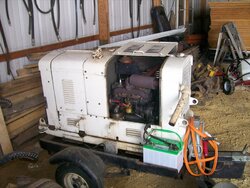I graduated from college about a year ago and am doing the whole adult thing now. Therefore, I am new to the ownership and maintenance of chainsaws, lawn tractors, etc.
What do y'all do to winterize and prepare your equipment for winter use?
I am planning to use my saw throughout the winter to continue harvesting firewood. Thank for all the help.
What do y'all do to winterize and prepare your equipment for winter use?
I am planning to use my saw throughout the winter to continue harvesting firewood. Thank for all the help.


